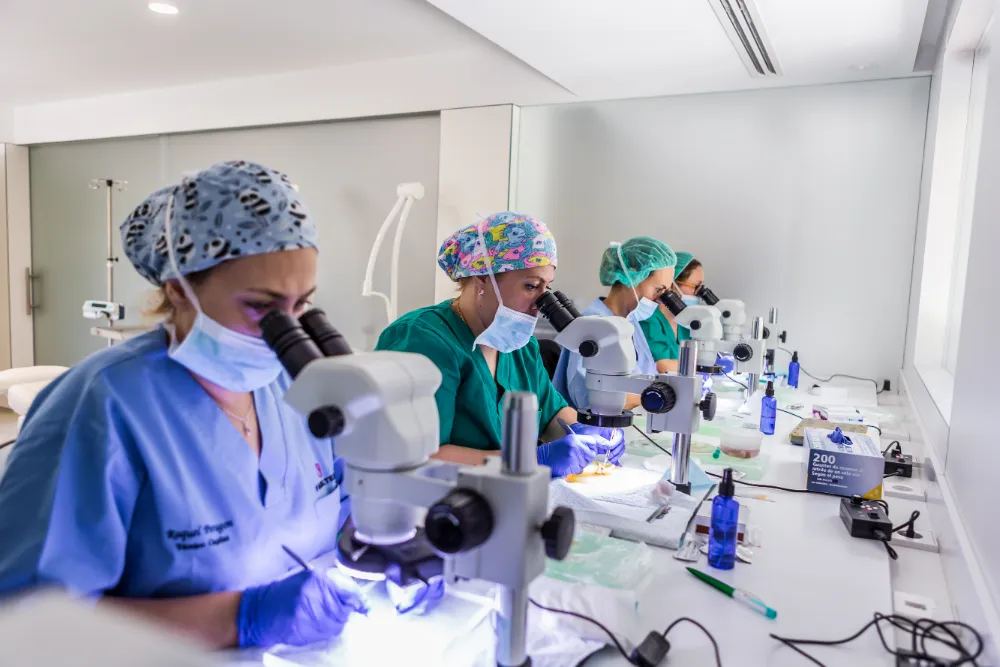Why you need permanent hair removal before FFS

At Peach Clinics, collaborating center of Facialteam in Australia, we frequently see distressed clients requiring permanent hair removal before FFS or other gender affirming surgery. Let’s talk about why it is important to do right and which methods really work.
Why should permanent hair removal be done prior to surgery?
There are a number of reasons to permanently remove hair prior to facial feminization surgery. Facialteam recommends that facial hair be mostly eliminated before ffs surgery as it will allow patients to see more definitive results sooner, without the need for coverup makeup for shadow.
For genital gender affirming surgery surgeons commonly require various areas to be free of hair if utilized in the surgery, especially skin that will later be inside the vagina. This is to get the best results, both operatively and practically. Some surgeons may even not perform surgery if there is hair remaining on the skin used for the neo-vagina.
If any hair follicles remain in the skin employed to create the neovagina, they will continue to grow inside. These hairs are very difficult to remove as they are often facing inwards and they can cause pain and irritation during penetration and dilation. Postoperative hairs remaining in the vagina can hold patients back from becoming intimate with a partner and can lead to increased dysphoria.
Most importantly, having these hairs removed after surgery is often not possible, as they are often too inaccessible to treat. Permanent hair removal must always be considered before surgery.
So why do some surgeons tell patients not to bother removing genital hair?
Some say they will “scrape” away hair follicles during surgery, but this is not always effective long term and can leave the skin thin and fragile while leading to ingrown hairs and infection. Surgeons require the skin used for surgery to be in the best possible condition and may reject the idea of pre-operative genital hair removal because they see too many patients arriving for surgery with skin still recovering from recent hair removal.
When should you start pre-operative hair removal?
Pre-operative genital hair removal should be planned well in advance of surgery. Planning genital hair removal around surgical dates is essential and too often we see clients who leave their hair removal until the last minute.
Starting the hair removal journey early will allow sufficient time for the hair to be removed and skin to heal as you want to ensure that the surgical area is completely clear of hair and in the best of health. Ideally, genital hair removal should start about 1 year before surgery. Generally, there will be between 20-25 hours of treatment required.
With both facial feminization and genital gender affirming surgery, the gap between your final electrolysis sessions and surgery must be no less than 6-8 weeks. Any shorter period can lead to less than desirable surgical outcomes. Often clients will seek genital hair removal just a few months before surgery and, unfortunately, there is little that can be done to ensure hair free areas at this late stage.
What hair removal method should be used?
Some surgeons recommend laser hair removal, which usually only reduces the hair growth, rather than permanently removing it. Hair treated with laser can regrow in the genital region months and, sometimes, years after surgery. This can be distressing and very difficult to remove.
Ideally, a permanent form of hair removal should be undertaken pre-operatively.
Electrolysis is the only form of hair removal which is classified by the US Food and Drug Administration (FDA) as permanent hair removal and should be the only method considered reliable for genital hair removal.
Always choose a hair removal therapist who is experienced and knows what they are doing, who can assist you in finding suitable pain management (local anaesthesia) and who works with surgeons to fully understand what the surgical requirements are.
With hair removal, there are two main things you need to remember: start early and make sure it really is permanent.
For further information on this subject, contact Peach Clinics at [email protected]

